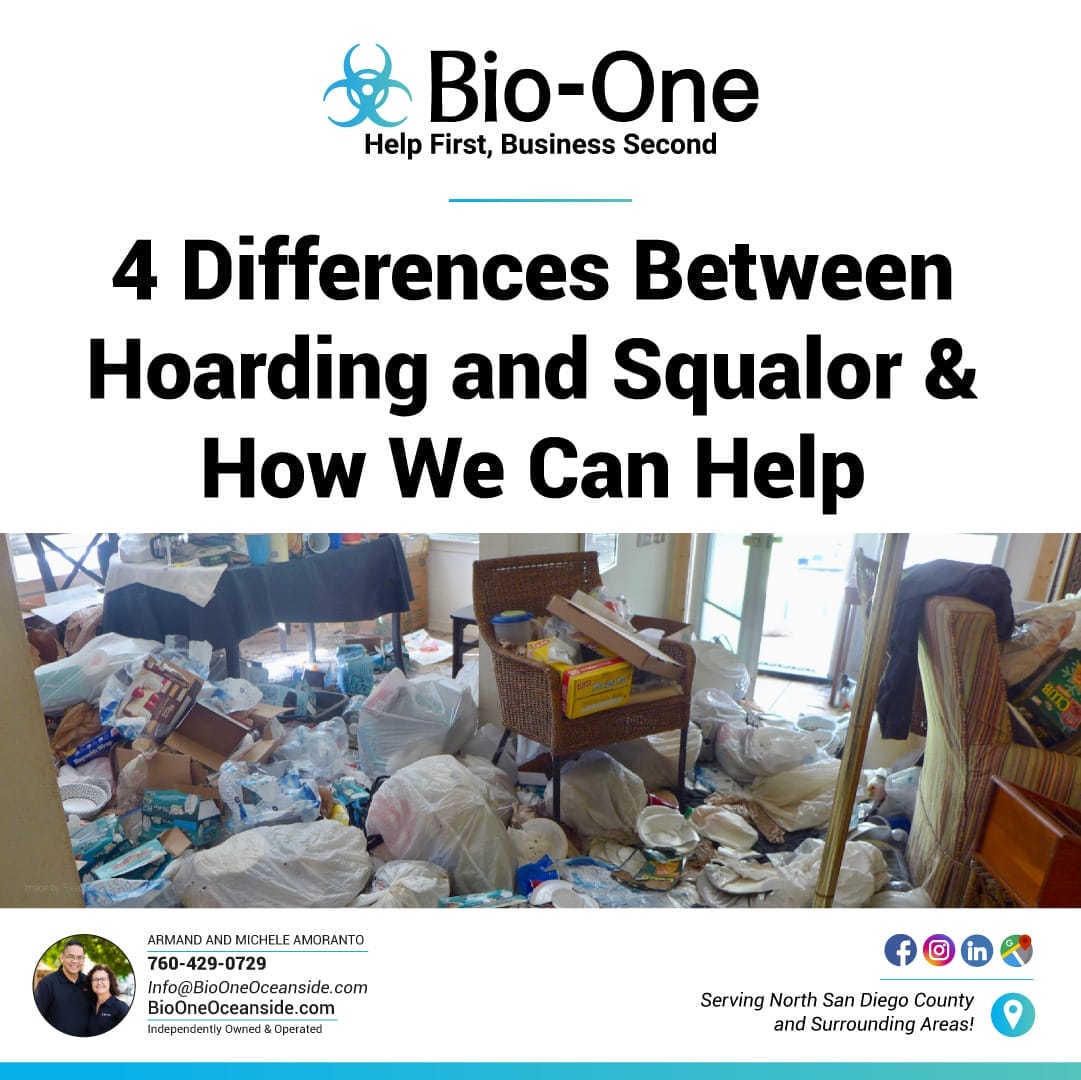
Hoarding and squalor are two terms often used interchangeably, but they refer to different situations. While both involve excessive clutter and disorganization, each has distinct characteristics and underlying causes. In this blog post, we'll explore the differences between hoarding and squalor and discuss how our team at Bio-One of Oceanside can help those affected by these issues.
Hoarding is a mental health disorder characterized by an excessive accumulation of items and difficulty discarding them. People who hoard have a strong emotional attachment to their possessions, often believing that they will need them in the future or that they have sentimental value. Hoarding usually results in overwhelming clutter that can impede daily living activities and pose safety hazards.
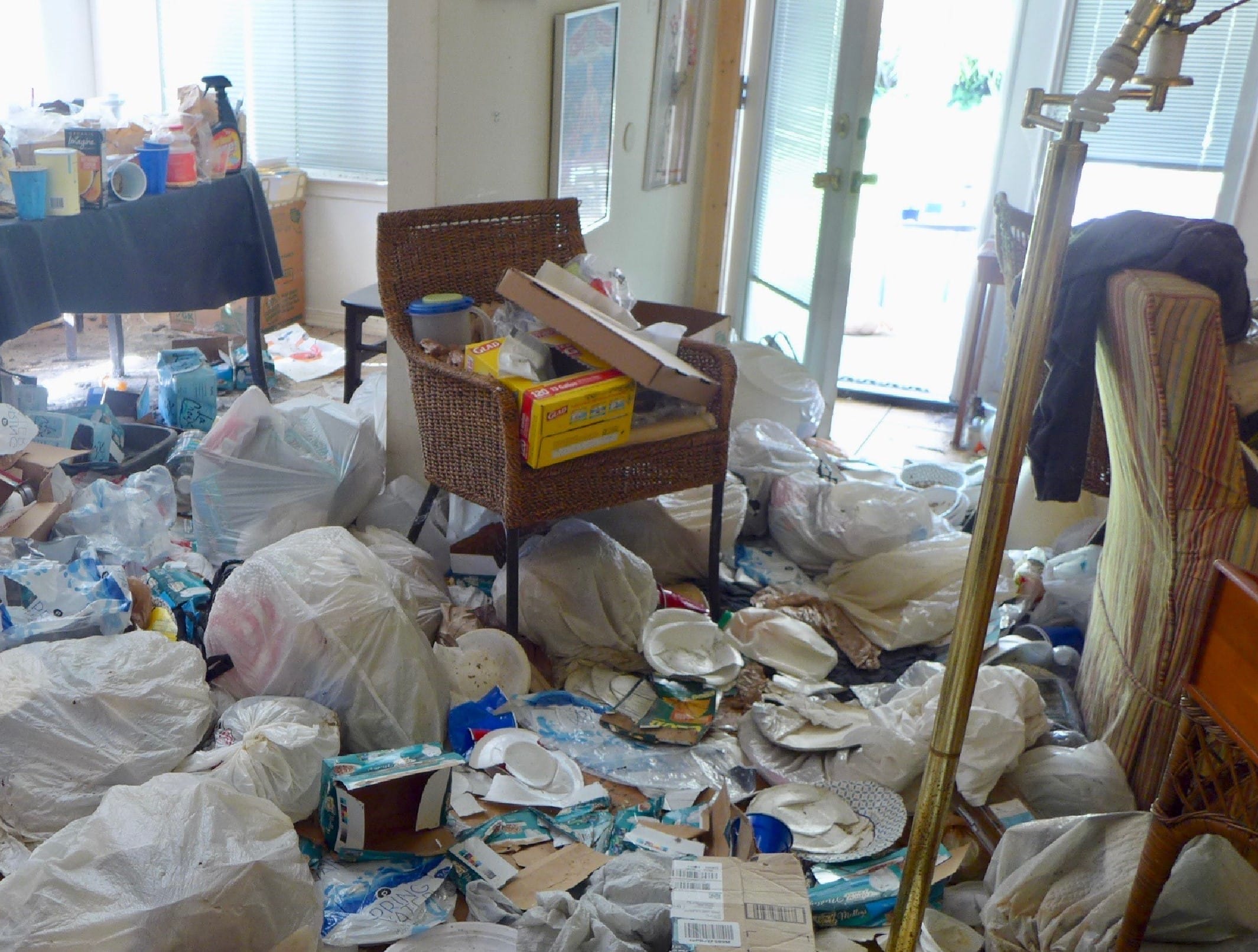
Squalor, on the other hand, refers to a living environment that is extremely unclean and unsanitary. It often occurs as a result of neglect or an inability to maintain a clean living space. People who live in squalor may not necessarily have a hoarding disorder, but they struggle with keeping their living space clean and organized.
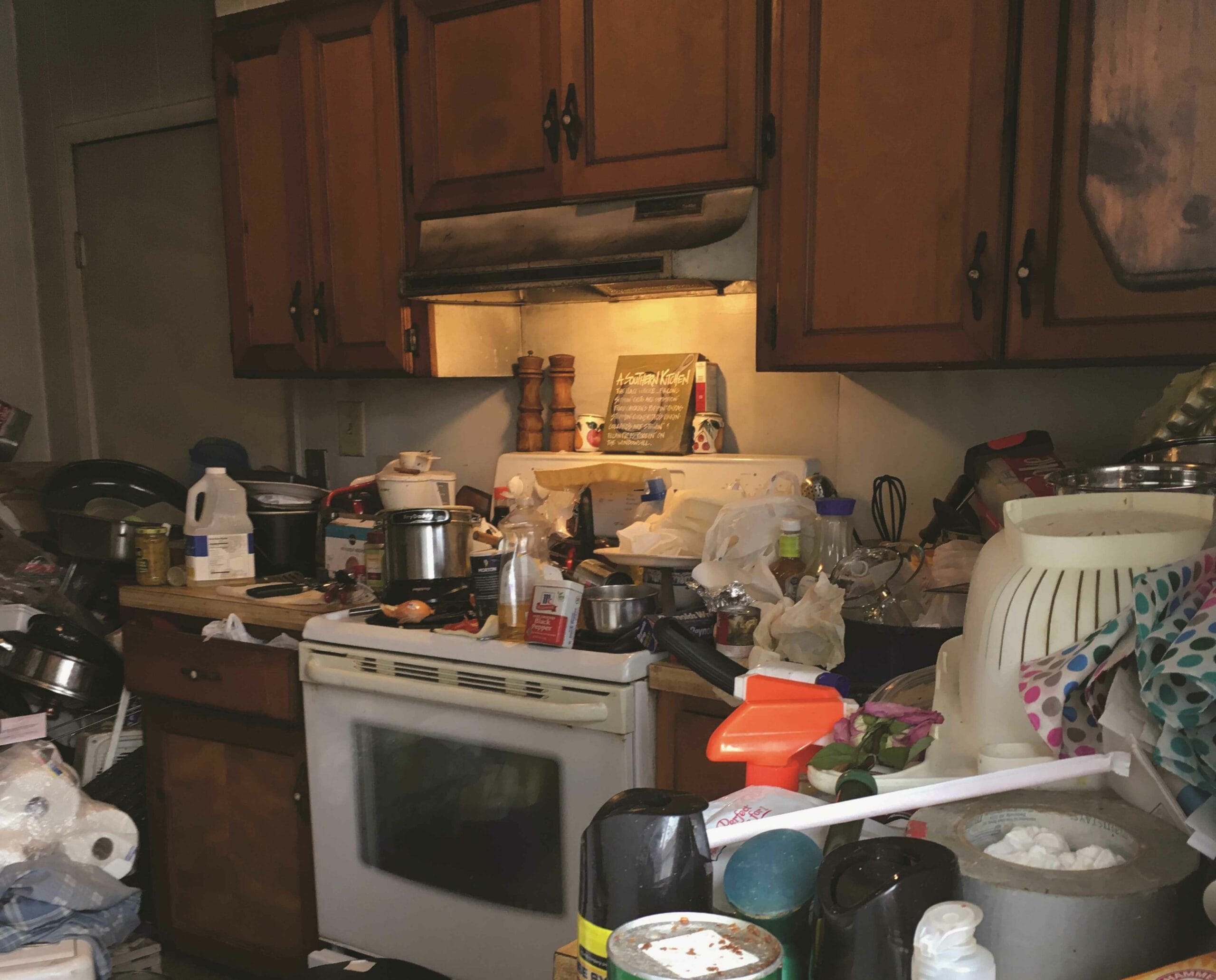
Hoarding and squalor can often occur together, but they are not the same thing. While hoarding is a mental health disorder, squalor is a symptom that can result from it. For example, a hoarder may have difficulty discarding items, leading to excessive clutter and eventually squalor.
However, not all hoarders live in squalor, and not all people living in squalor have a hoarding disorder. Both conditions can coexist or occur separately. Treatment for hoarding does not necessarily address the squalor, and vice versa.
While both conditions manifest in poor living conditions, each arises from distinct causes and has unique characteristics. Here are four key differences between hoarding and squalor:
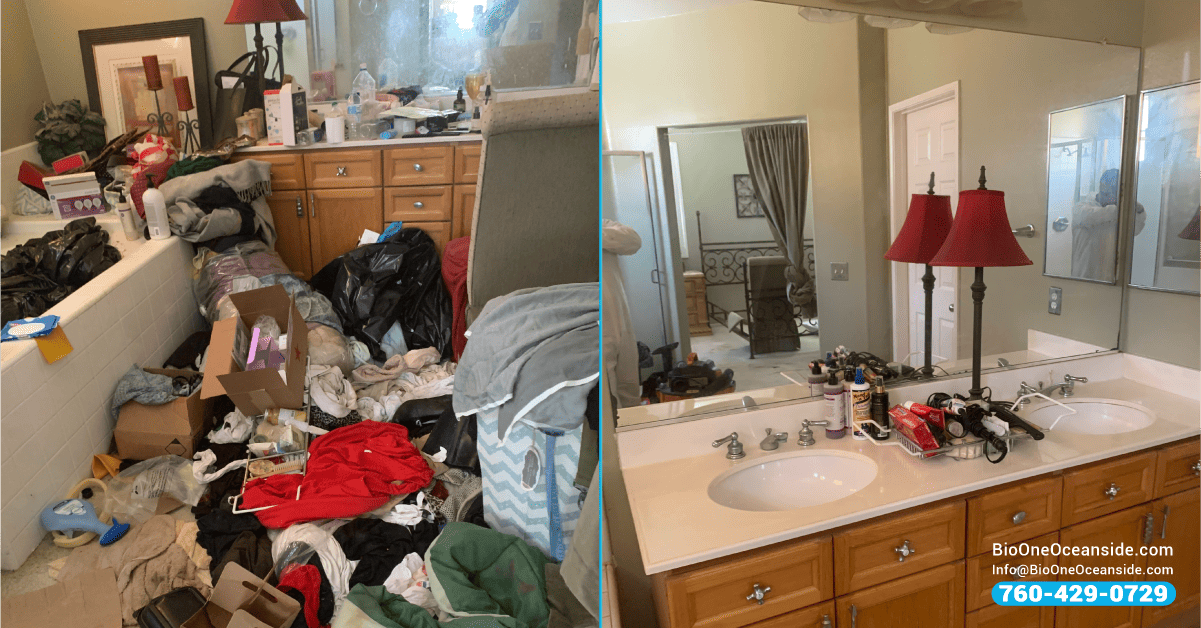
With proper treatment and support, both hoarding and squalor can be overcome. Here are some ways to address these conditions:

One common misconception about Hoarding Disorder is that it is a choice or a result of laziness. However, research has shown that HD is a complex condition influenced by factors like genetics, brain structure and function, and life experiences. Therefore, it's essential to approach treatment with empathy and understanding.
Furthermore, recovery from hoarding is not a one-time event; it requires continuous support and effort. Even after completing a treatment program, individuals may still struggle with triggers and relapses. Therefore, seeking ongoing support is crucial in maintaining progress and preventing a relapse.
Here at Bio-One of Oceanside, we understand the challenges faced by individuals struggling with hoarding and squalor. Our trained professionals offer compassionate and discreet services to help declutter and restore living spaces affected by any of these scenarios.
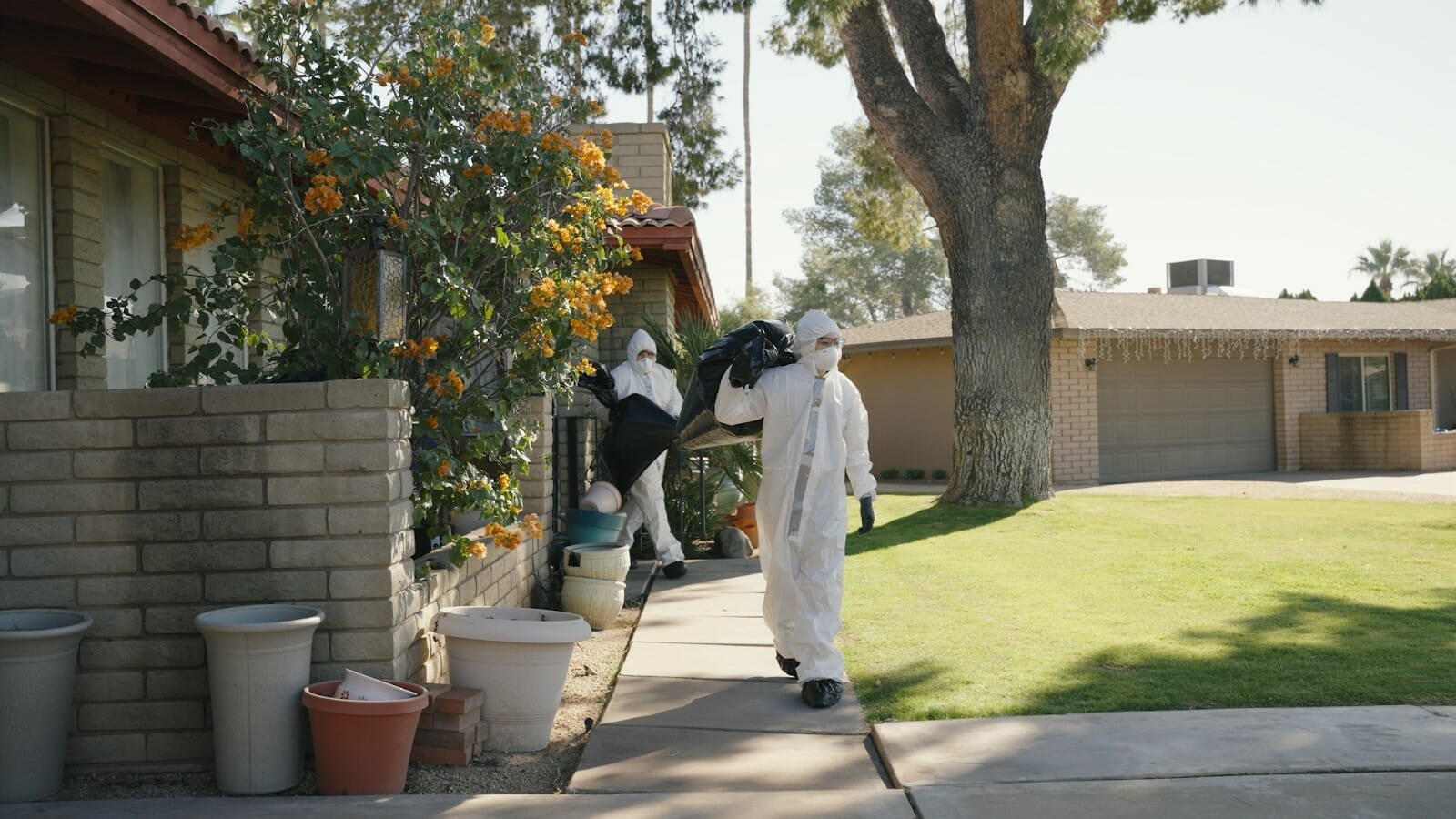
Additionally, we provide ongoing support and resources to assist individuals in maintaining a clutter-free environment. Our team is committed to helping those with hoarding overcome their challenges and accomplish a healthier, happier life. If you or a loved one is struggling with hoarding and squalor, don't hesitate to reach out to Bio-One of Oceanside. We are here to help and support you every step of the way!